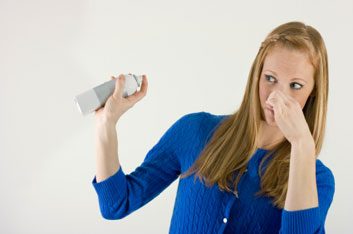News: Are air fresheners dangerous?
Yesterday I unplugged the electric air freshener in my bathroom. Sure, it imparts a lovely (if not distinctly phony) lemongrass

Yesterday I unplugged the electric air freshener in my bathroom. Sure, it imparts a lovely (if not distinctly phony) lemongrass fragrance and makes my bathroom smell like a day spa. However, reports that a Newfoundland toddler was sent to hospital after ingesting liquid air freshener have me wondering if I should even be breathing the stuff.
‘The products contain alcohol and present different risks,’an official from the hospital where the child was sent told the Canadian Press.
What are those ‘different risks?’ Well, the U.S.-based Environmental Working Group, a non-profit organization that provides information to the public about environmental toxins, identifies air fresheners as a source of indoor air pollution. When the group recently studied common cleaning supplies they found that one brand of air freshener tested released a grand total of 89 air contaminants.
A 2008 independent test conducted by the CBC found that nearly one third of brands tested contained two types of phthalates which have been linked to fertility and developmental problem in rats, the article reports. More troubling still is that Health Canada identifies air fresheners as a possible source of volatile organic compounds.
However, SC Johnson, the company that manufactures the Glade line of air fresheners has this to say on their website about the safety of its products:
‘When used according to label instruction, in real life situations, air fresheners are safe. In addition, there is no evidence supporting a significant risk to human health from the use of air fresheners under normal conditions.’
So what do you think? Will the story about this toddler make you toss your air freshener or are you confident that your sweet-smelling air is safe?
Related:
‘ The truth about fragrance sensitivity
‘ The truth about petrolatum
‘ Green beauty: What the labels mean




